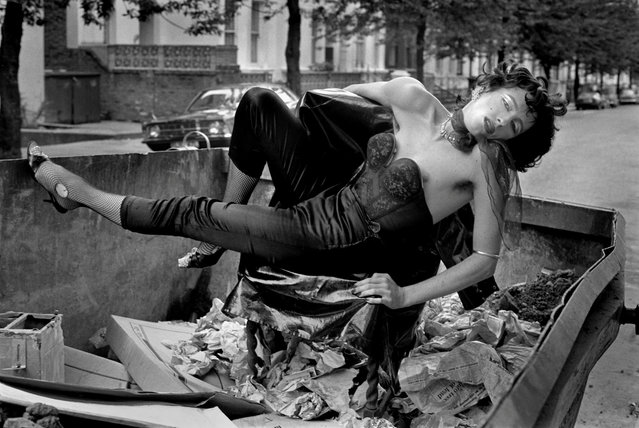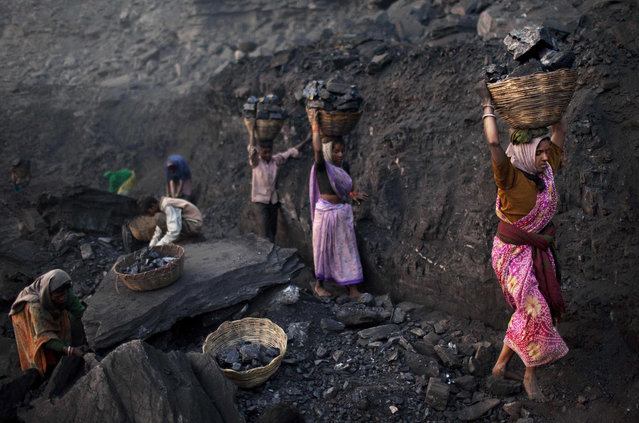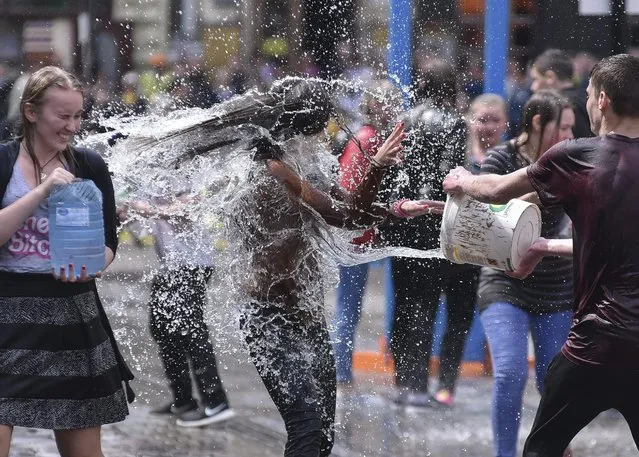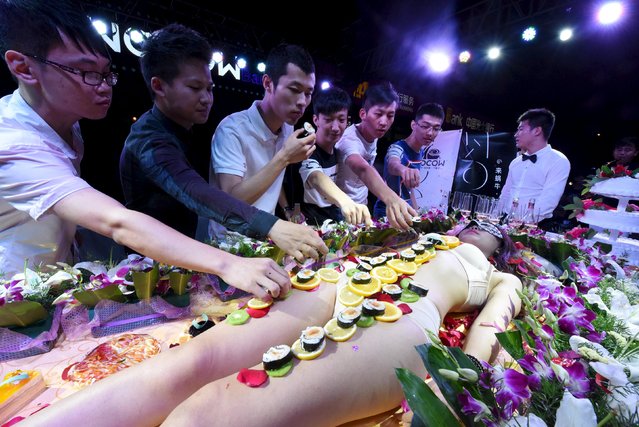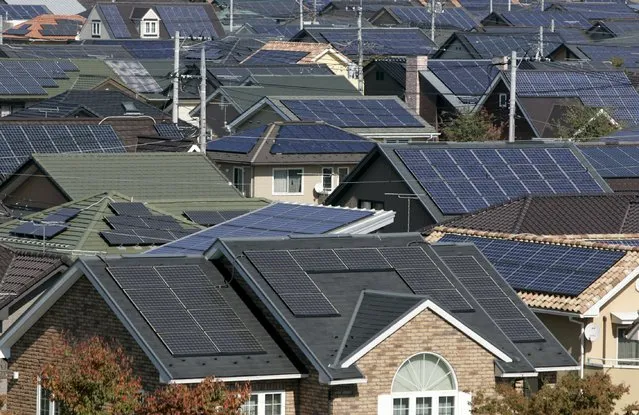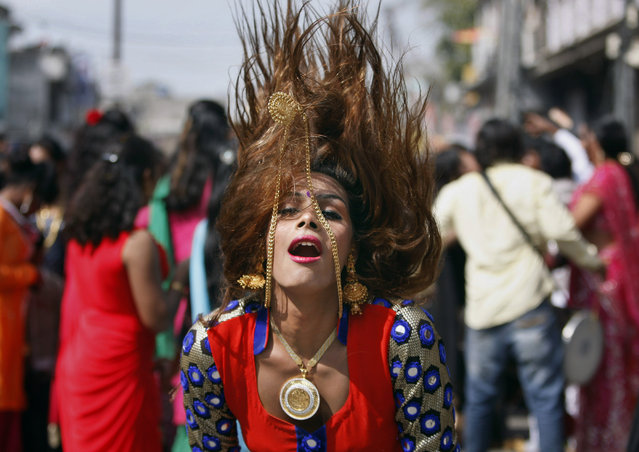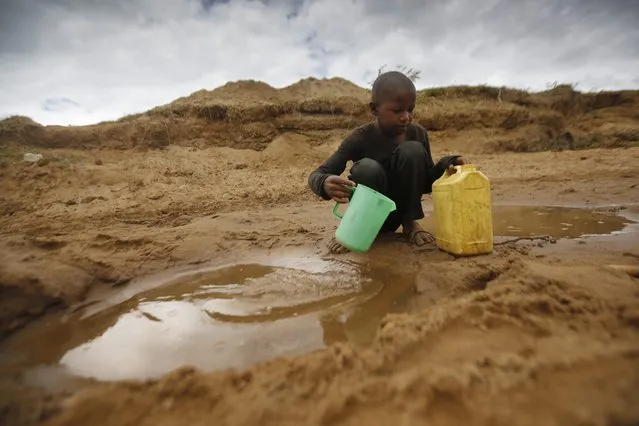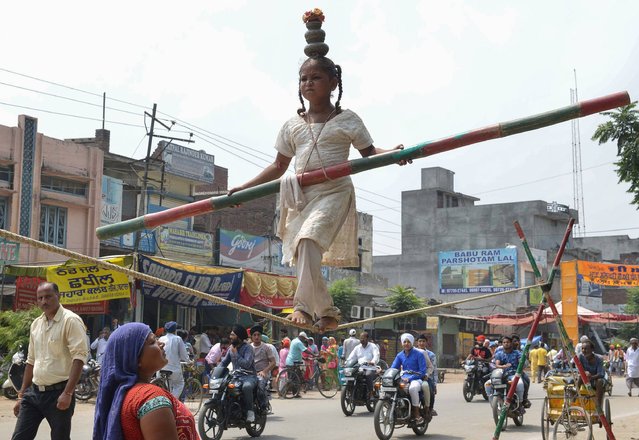
This August 28, 2017 photo shows eight-year-old Indian girl Bharti performing a balancing act on a rope during a street show in Batala, India. Travelling Indian performers, who earn a meagre income from putting on shows on the streets, often scout areas to gather a large street audience who then give money on a collection plate at the end of the show. (Photo by Narinder Nanu/AFP Photo)
30 Aug 2017 07:09:00,post received
0 comments

